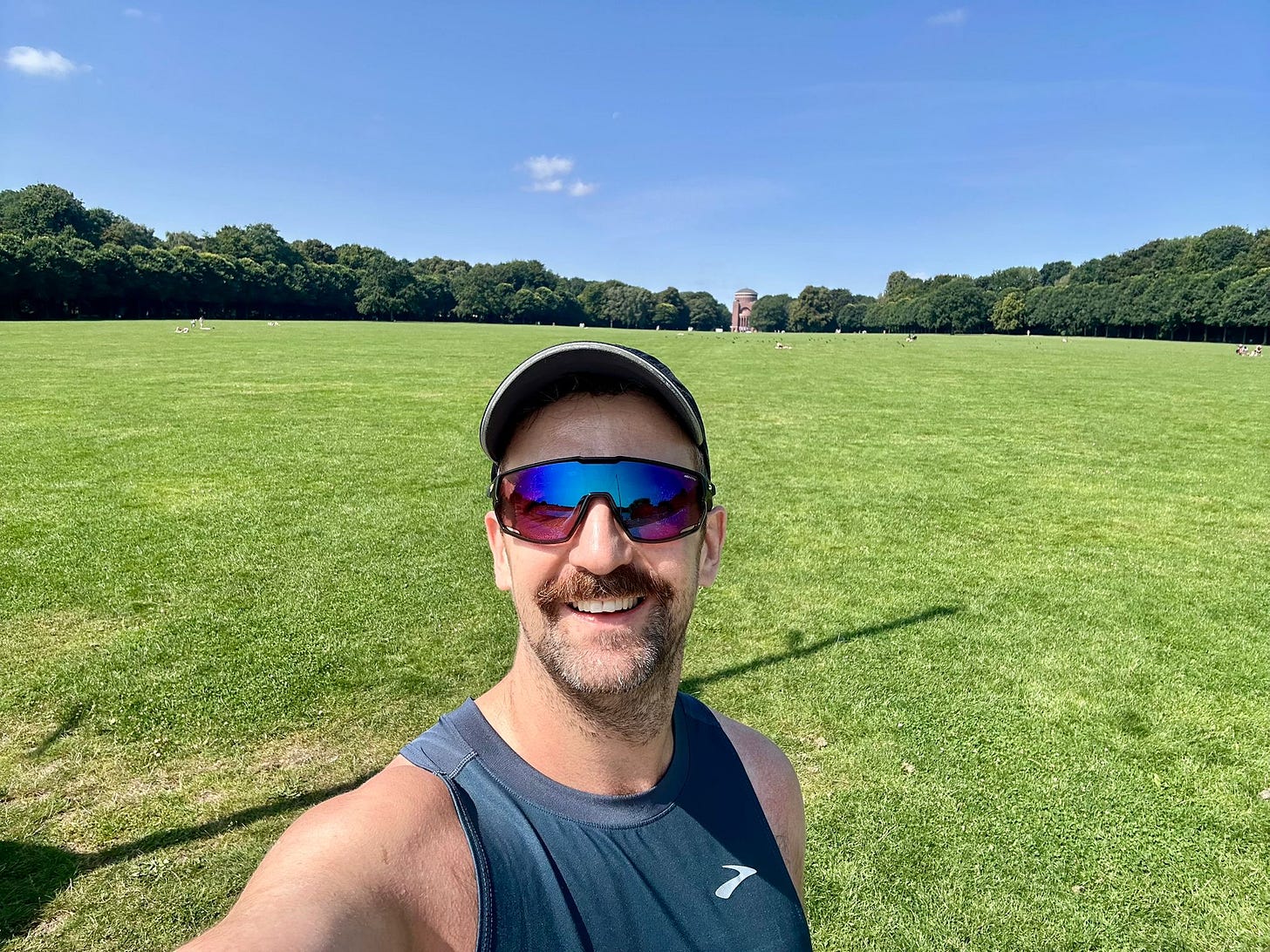From Chasing Quick Wins to Becoming the Person Who Shows Up
I have always chased quick results
I have always chased quick results.
The idea of working on something I truly believed in was foreign to me. When I was a child, my father repeatedly told me:
"After finishing work, you must immediately hold out your hand for payment!"
This advice shaped my mindset toward shortcuts, immediate results, and short-term thinking.
My philosophy was simple: if someone paid me 0.01 cent per row to copy and paste data into a spreadsheet, I would do it. I believed volume work would triumph over smart work.
Lessons From My Parents
My parents couldn’t teach me about compound effects or building a personal brand because they had never experienced these concepts themselves. Instead, they taught me that people only wanted to rip me off and that I shouldn’t trust anyone. If someone promised to pay after a week, I should threaten to stop working unless they paid me daily.
"They will trick you," my mother warned.
"The only real money is what you have in your pocket," said my father, pointing upward with his finger.
Everything else was just empty promises.
The concept of a monthly salary was the biggest compromise my parents ever accepted, and I learned that this was an tolerable way to earn a living.
The Travel Blogger Dream
When I moved to another country to work and create a comfortable lifestyle, I started to ask the most privileged question of all:
What do I truly want in my life?
How can I find fulfillment?
The first thing that came to mind was becoming a travel blogger. Back then, I loved the idea of living like Nomadic Matt — traveling the world and getting paid for it.
Yes!
I knew exactly what to do: start a blog called Traveler Dave, travel, and write about it. The money would be transferred to my account every day, and from then on I’d be lying on the beach under palm trees, writing my blog.
It was so simple in my head.
I’ve always had this naïve way of looking at things.
The technical side was easy for me. I set up a WordPress site, added social media buttons to my articles, and imagined people sharing my work while the money started flowing in.
The blog was ready.
All I needed was to book a flight to somewhere inspiring.
Venice: Beauty for All, Breakdown for Me
Venice drifts like a dream woven from shimmering canals and ancient whispers, where every stone and ripple sings of timeless romance and fading echoes.
That’s ChatGPT’s description, but it captures exactly how I felt.
I loved that small Italian town with all its beauty. My motivation was explosive. For a couple of days, I was living my dream. Sitting in an old wooden bed in my Airbnb, I began typing about my short experiences. I took high-quality photos with my GoPro Hero and iPhone. The article was short, simple, and childish. It didn’t take more than an hour to finish because I was desperate to hit “publish.”
It’s online.
I waited with a warm, tingling excitement in my chest.
Then the hours passed,
no views,
no comments,
no shares on my nicely formatted social media buttons.
And my phone didn’t light up with any payment notifications.
Weird. Not even that 0.01 cent for typing words.
Did I connect PayPal correctly?
Facing reality is hard for everyone. I was one of those people who felt like being slapped in the face with a dead octopus.
The next day, my blog was still like a deserted Western movie set with tumbleweeds rolling by. I was sure I had done something wrong, so I opened my browser and searched for answers.
What I found didn’t make me happy at all. People online said that to become a successful blogger, you needed to write for years—and not expect to monetize in the first two years at all.
What? I was disappointed while breathing out and making that funny noise with my lips.
But after two years, there’s a guarantee to make good money, right? I wondered.
Nope.
You might realize after four years that you’ll never make a cent.
Not even 0.01 cent?
No, not even that.
That piece of reality instantly killed my motivation. Motivation is like a match. Quick to spark, quick to burn out.
I had spent money on the domain, the fancy social media icons, the flight, the Airbnb, and all sorts of WordPress tools to make my blog shiny.
Hell, I didn’t think for a second about continuing.
I quit.
Quick favor: If this resonates with you, I’d be grateful if you subscribed to Running Home. I share more stories like this about growth, awareness, and the messy journey back to yourself. It’s free, and it helps me keep writing honestly. Thank you. — David
Becoming a “Business Consultant”
Two years later, I started another website. This time under my own name, David Meszaros. I wanted to be the next Neil Patel, an online marketing expert, without knowing anything about it.
Same process: domain, blog, more colorful icons. I even paid a professional photographer to take high-quality photos of me pretending to be a business consultant.
I was so motivated.
The project ended as quickly as my last sip of coffee on a busy morning.
I hated the idea of working without guaranteed money.
So I quit again.
I carried the same attitude into my jobs. I never wanted to understand use cases or think of better ways to do my work. That led to recurring mistakes and superficial results. My only focus was finishing as fast as possible so I could jump to the next task.
I avoided depth.
It was uncomfortable to be “in the middle” of something. It was like sitting in a small boat in the middle of the ocean with a panic attack. The unknown was depressing. I craved the start and the finish because they meant movement and closure.
No open tasks on my desk.
No uncertainty.
Running Into Consistency
Then the pandemic happened. Like many others, I was locked down. A good friend of mine started running during that time. Running became popular and people started training for marathons. Jogging had always been part of my life, but I never thought about taking it seriously. My friend trained for a half marathon and dove deep into the sport, and he influenced me. Honestly, it wasn’t hard because running was always there.
I just needed the push.
I started running more often. At first, I was still chasing quick wins without realizing it. But those early 0.01 cent victories, like running 5k without a pause, were enough to keep me lacing up my shoes. I wanted to improve more but it wasn’t as easy as I thought. I watched videos about becoming a better runner. One YouTuber said that endurance is built over years, with a good plan, proper technique, and consistency.
By the time I noticed the wins had slowed, running had already become part of me, so quitting never even crossed my mind.
I ran three times a week with a decent structure: Tuesday, Thursday, and Saturday. At first, it was hard to match the rhythm with work, but I quickly adapted. I ran 10k without stopping, then 16k. Huge milestones. Eventually, I signed up for my first half marathon. Months of training later, I ran 20k without stopping.
It felt incredible.
But then progress slowed even more. Weeks passed without my cents. My heart rate stayed high, my technique was poor, and I picked up some injuries. I had reached the stage where improvement meant putting in more work for just 1% gains over long periods. I bought better shoes, worked on my running form, and learned how to lower my heart rate while running faster.
Trusting the Process
Months passed. Running became routine. Run, analyze, improve—rain, heat, or cold.
I just go and do it again and again.
I trust the process.
Now I focus less on achievements and more on continuity. The most important thing I can do is not skip sessions and stick to my plan. Small setbacks don’t upset me anymore. One bad training doesn’t make me want to quit.
It doesn’t define me.
Consistency does.
I’m a runner, so I run.
Knowing that I didn’t skip a training in the last three months made me way more satisfied than finishing a marathon. And actually, that is more than a 0.01 cent result.
Applying Consistency to Life
This process changed my mindset deeply. I became more patient in daily life. If I research a new course about an interesting topic and see it takes a year, I nod like De Niro, his downturned mouth fixed in that skeptical, knowing way.
At work, I think more, move slower but smarter. No more rushing just to finish.
I’m no longer terrified of being in the middle of the process. As a runner, you’re always in the process.
Do you have to become a runner to be consistent?
Not at all. Running is just my way of shaping a mindset from impatient and result-focused to consistent and system-focused. You could do tennis, cycling, writing, or anything that keeps you showing up.
Running is just one of the simplest ways.
Here are my 0.01 cent tips for getting into the consistency game yourself:
Start Small
My first run was barely 2 km. My face was red as a tomato, and I was gasping for air. Today, my training follows the 80/20 rule: 80% easy runs (slow enough to hold a conversation) and 20% hard runs (intervals and sprints). The easy runs are key because they keep you from burning out and make you look forward to the next session. They are enjoyable and proof that you can do it. The same applies to writing: just 300 words a day is enough to keep going. Think long term and pay attention to your well-being.
Create a Routine
I run on the same days at the same times. Sometimes I shift a session for work, but I stick to the plan. You can skip once, but better not twice, because it creates the habit of skipping. Keep in mind that one short or bad session doesn’t define you. You are still a runner or a writer, even on off days.
Track Your Progress
I use a calendar and apps like Strava to log every run. I take photos and write a few words about each session, not for others but for me. Set small goals: run 5k, play 30 minutes of tennis, or write 300 words. For writing, I use Notion and create a new page for each piece so I can see my progress over time.

Use Systems
A morning writing routine beats “feeling inspired.” A scheduled run beats “waiting to feel ready.” Motivation is unreliable, but systems keep you consistent. Once your system is strong enough, you will stop asking yourself if you should do the work. You will just do it.
Today?
When my friends ask if I run in the rain, I just smile.
I don’t even understand the question.
Consistency is not about motivation. It’s about showing up, again and again, rain or shine. That’s what shapes you, more than any instant win ever could.
Thanks for sticking with me through this one. If you’re going through something similar, or have your own experience with this, drop a comment. I read every one. — David
Read more:







Loved it